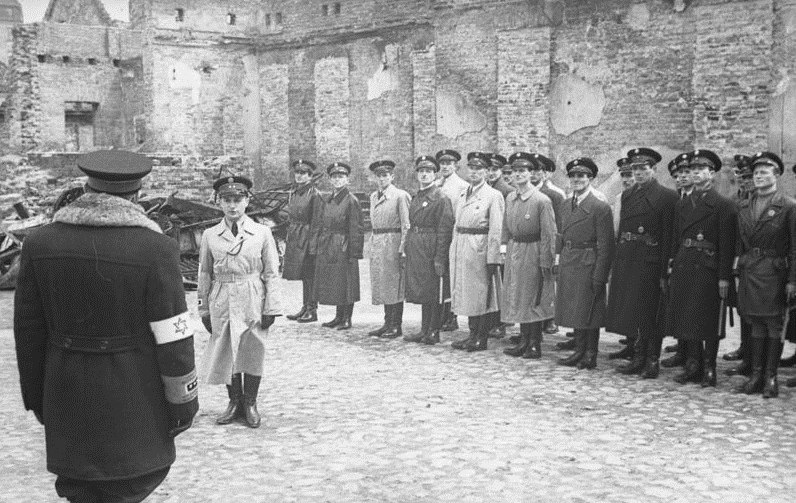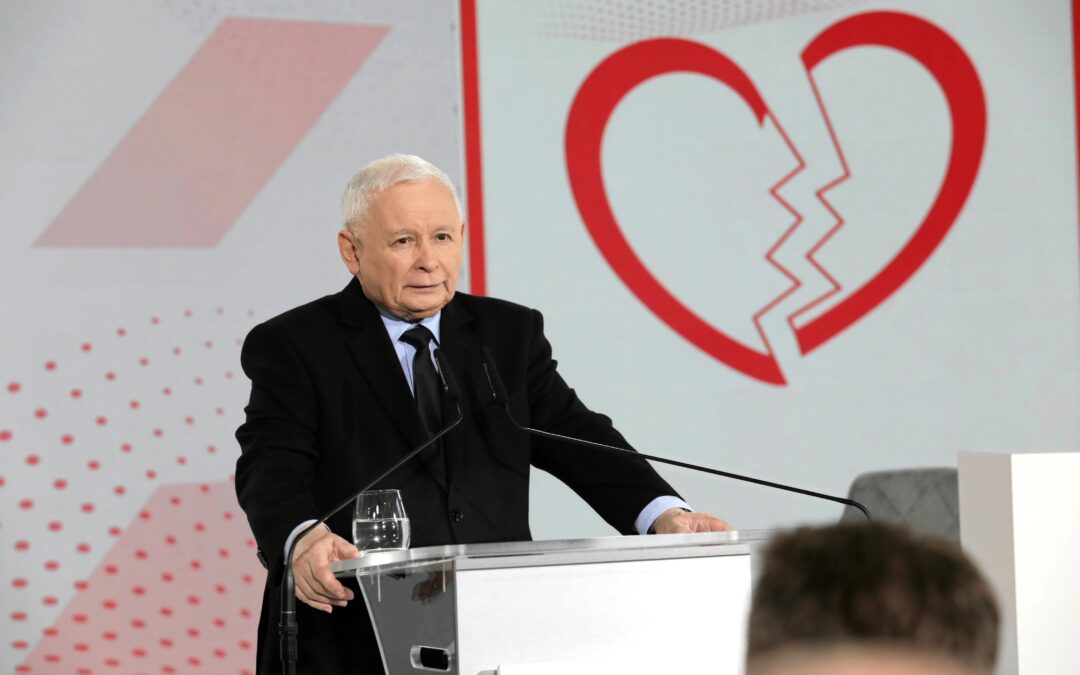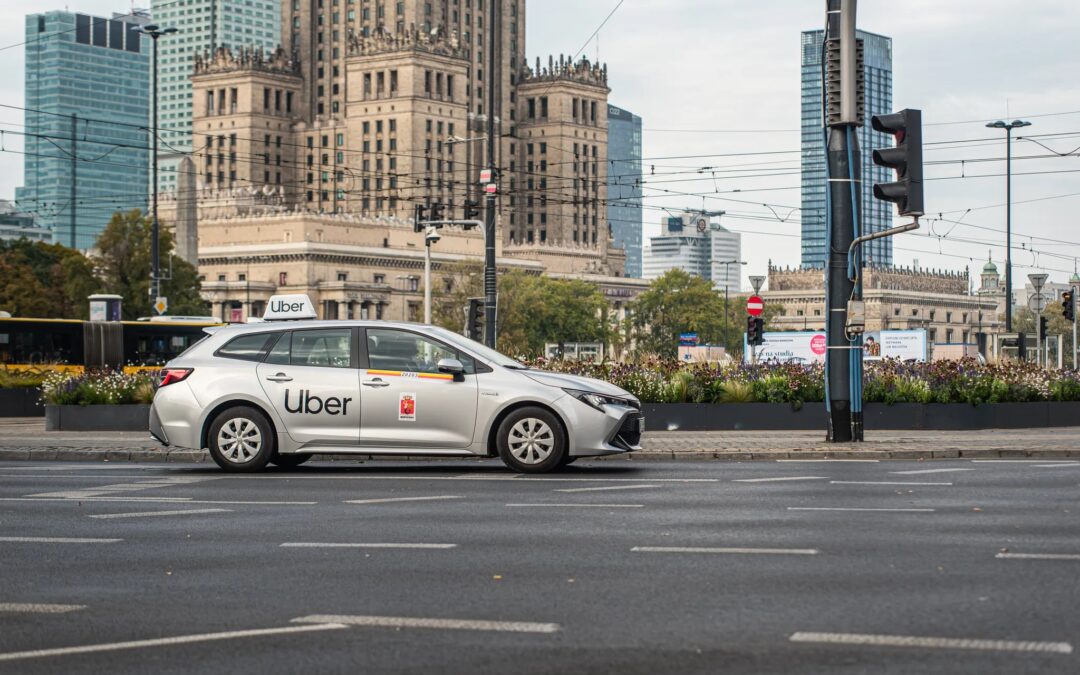The Jewish ghetto police have one of the most complex and difficult legacies in the history of the Holocaust. Initially established by the German Nazi occupiers as a force to keep order in the ghetto, directing traffic and managing rubbish collection, they were later used to round up residents and transport them to labour and death camps.
They have thus become a symbol of collaboration with the Nazis – yet they were also victims of the Holocaust themselves. Their history therefore challenges simplistic narratives of the war. It has also been exploited in the heated debates that take place in Poland over the Holocaust, often used to deflect blame for Polish participation in crimes against Jews.
We spoke with Katarzyna Person, a historian at the Jewish Historical Institute in Warsaw, who has written an award-winning book, Policjanci (Policemen), on the Jewish ghetto police, to be published in English next year.
Wywiad dostępny również w języku polskim.
Agnieszka Wądołowska: The Jewish ghetto policemen are stereotypically viewed as traitors recruited by the Nazis to help in the genocide. You write that by redistributing violence, “a police service created by the Germans become both a tool and a victim of the Holocaust”. Why did you make this the focus of your research?
Katarzyna Person: There are a few reasons. I’ve always been interested in the complexity of this experience and the desire to give the people who were murdered their humanity back. It is about showing the complexity of their characters and stories, how they behaved, and what decisions they made.
Secondly, I was interested in the Jewish police as an element of the antisemitic narrative. It’s a key element of the antisemitic discourse which appeared even during the Second World War, first in the Nazi propaganda and the narrative of the right-wing underground press, and then in communist propaganda, and continues to be present in the public space even today. The Jewish police became a key element of the comparisons of who suffered more, the martyrdom chess game of who was better and who was worse. Whatever the discussion was, one could always say that Poland didn’t have a quisling, while in the ghettos there were Judenrats and the Jewish police.
Also from that perspective, I thought it was hugely important to produce a thoroughly prepared, source-based history of the Jewish police and for us to be able to talk about it. I also quite wanted to demystify an organisation that was unambiguously seen as collaborationist.
“Some were poor and some rich, some terrorised by the prospect of being rounded up and taken to the camps, and others just wanting to make money.” You show a wide range of attitudes. Why is it worth understanding them?
Precisely to be able to take part in this discussion. Because these are not just questions that concern the Jewish police, but attitudes during the war and the occupation in general. And actually in every extreme situation we find ourselves in. But to truly understand their motivation, we need to look more deeply.
Looking at the stories you describe, one can see various shades of collaboration, resulting both from the desire for gain and from the hope to save loved ones.
These questions of what collaboration is, what its shades are and what causes it are indeed very important. In my view, though, the most important question is who chooses it and how these people see themselves. Do they regard themselves as collaborators, or as people trying to help their families to survive? How do they explain their behaviour to themselves? And how do those around them see it, including those who are their victims? What about their family members? How do we judge them? Do we have the right to judge them, or not? What do we have the right to perceive as collaboration from today’s perspective?
What answers did you find in the sources?
There are very many sources describing the policemen’s behaviour. But they have a strong emotional imprint, and this is where their value lies, although it definitely also creates a problem with research. Every community, of course, is most interested in its own members’ behaviour. And if it is the members of your own community, your neighbours or someone close to you who behaves in a way that you think is wrong, that is when it hurts most.
The organisation itself operated for around a year and a half. So there are also records presenting how they operated day to day – taking bribes, helping to round people up for labour camps – but also presenting them in extreme situations, so at the Umschlagplatz [the holding area adjacent to a railway station], for example. But let’s remember that the actual deportations were just a very brief period in the history of the Jewish police service. In some cases, it was a few weeks, and sometimes a day or two. However, even then those few days or weeks shaped the image of them.
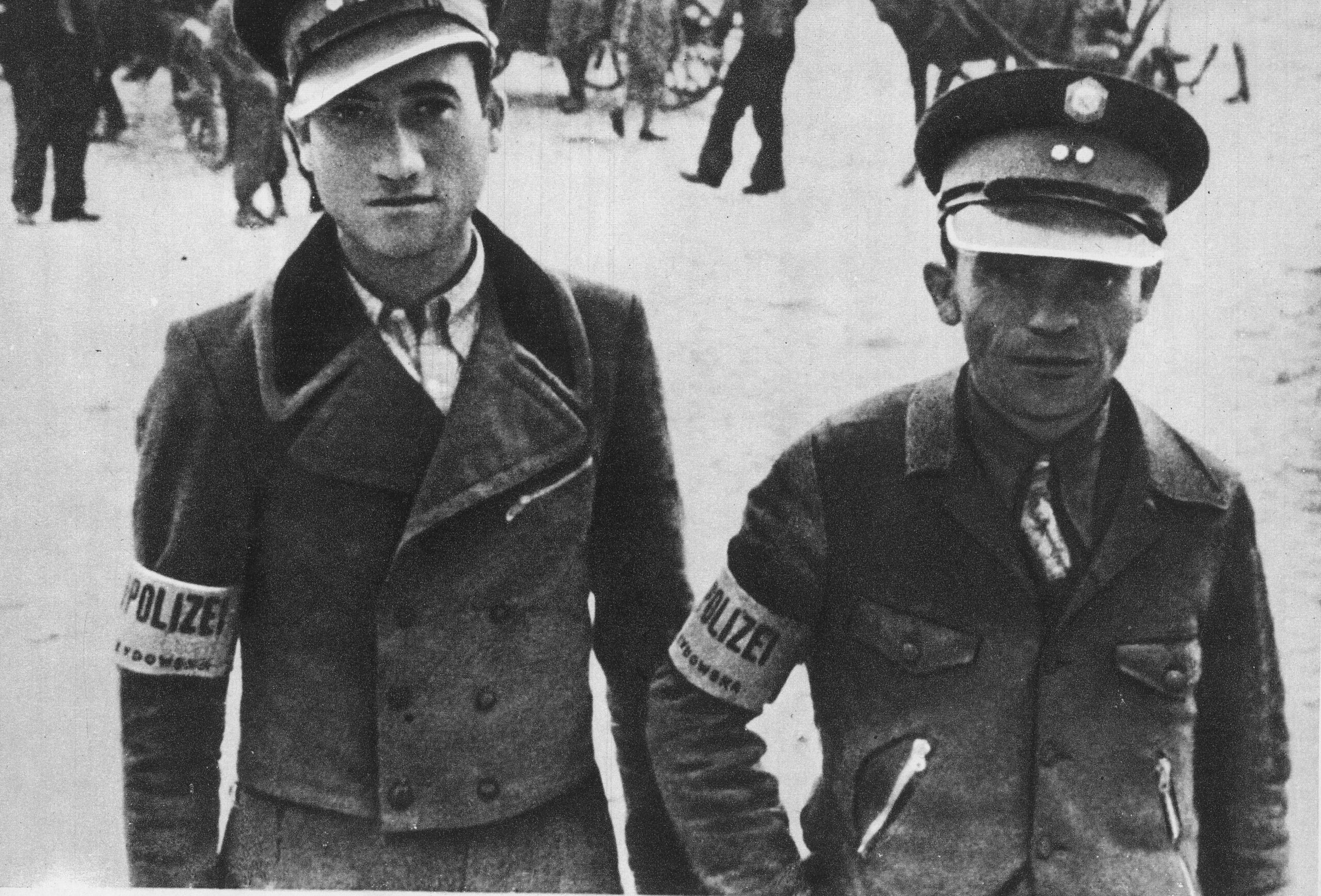
Jewish policemen in Węgrów
Initially, the Jewish police service was responsible for mundane issues such as keeping the peace or traffic control. How did attitudes towards them change among the residents of the ghetto?
We should start by saying that those who left accounts behind were usually members of the intelligentsia, so these descriptions cannot be assumed to be representative of the entire Warsaw Ghetto. They are the accounts of educated people, who often have a slight sense of supremacy over the police service. They also often have links with the people who joined the police service or have protection and acquaintances to be able to join the service.
Their approach to the service changed very fast. At first, they were actually supposed to be municipal police – after all, the Germans name didn’t give them the name “Jewish Order Service” by chance. It is worth stressing that they were not in fact policemen. They reported to the police, the Polish police. On the street maybe that was what they were called, which is where the name comes from, but they didn’t have the same powers as the police. The young people who joined the service were seen as irritating, looked down on, but actually treated quite neutrally.
This changed, of course, as the service became more corrupt, especially after deportations. Those who survived the Holocaust in the Warsaw Ghetto were people who had almost always lost their entire families, all their loved ones, at Treblinka, and they often blamed the policemen who took part in the deportations. On the other hand, many of them only survived thanks to Jewish policemen. Thanks to the fact that they managed to bribe someone or were family members of a policeman who helped them to survive.
How did they themselves change?
There were two mechanisms working at the same time. On the one hand, they were increasingly used for violence targeted at the residents of Warsaw Ghetto. That meant that they began to participate in roundups for the labour camps, as the ghetto had to deliver workers to the camps, which, of course, were places of torture. Many didn’t come back from there, and those who did return were in a terrible physical and mental state. Significantly, the Jewish policemen didn’t go to labour camps themselves, unless it was as guards. They also took part in anti-typhus disinfection campaigns. These were in effect campaigns targeted at the ghetto and causing damage to property and spreading typhus.
On the other hand, pauperisation of the policemen themselves ensued, because they didn’t have regular recruitment. They received allowances, but very low ones. And since they needed to live on something, they began to take bribes: from “mafia-type” bribes from businessmen or factory owners to everyday ones for leaving a house being disinfected or for fleeing from the labour camp.
The service therefore became corrupted, as the policemen were taking more and more, the ghetto was increasingly against them, they became increasingly distanced from it and united within the service, and these mechanisms spiralled. Of course, not everybody was corrupted, but the ones with such inclinations began to play increasingly important roles in the structure. They advanced by standing out as the cruellest and best at keeping order. And in the end, they were the ones who gave the service its image.
How did your approach to them change?
I began work on this book while writing my PhD, so many years ago. Now I increasingly think of them as twenty-somethings who joined the service without really knowing anything and suddenly faced terrible choices.
You mentioned the merits of being in the police service. In the book, you write that “for a short while they were given a chance to save themselves, their wives and their children”. Was collaboration in their case really an effective means of survival?
Before the deportations it was definitely a means of survival, as it allowed them to stay on the surface of the ghetto. The ghetto community were pauperised incredibly fast, and everyone was affected, both the intelligentsia and the pre-war middle class, as they in fact lived on selling off their property, but that was soon gone. Towards the end, the situation was dramatic. So in the early stage, being a policeman did indeed allow people to survive or keep their family, if only the closest ones.
When the moment of deportation came, everything changed. It was an absolutely extreme situation in which decisions needed to be made immediately. The policemen had a choice between their own and their families’ lives, and those of other people. Either or. There’s only one option, in fact. Although there were some who left the service then.
Unfortunately, we don’t have data on policemen’s survival, only intuitive conclusions. Some policemen managed to get their wives and children out to the Aryan side. Some of them decided to leave the service when they knew their families were safe. This shows that they often didn’t care about their own lives, but those of their loved ones. But remember that this doesn’t mean their efforts were unsuccessful, but at least they could try. Saving one’s family did not necessarily make it easier to save oneself. The policemen themselves had a similar chance of survival as others from their circles, meaning assimilated or strongly Polonised Jews from Warsaw or Łódź.
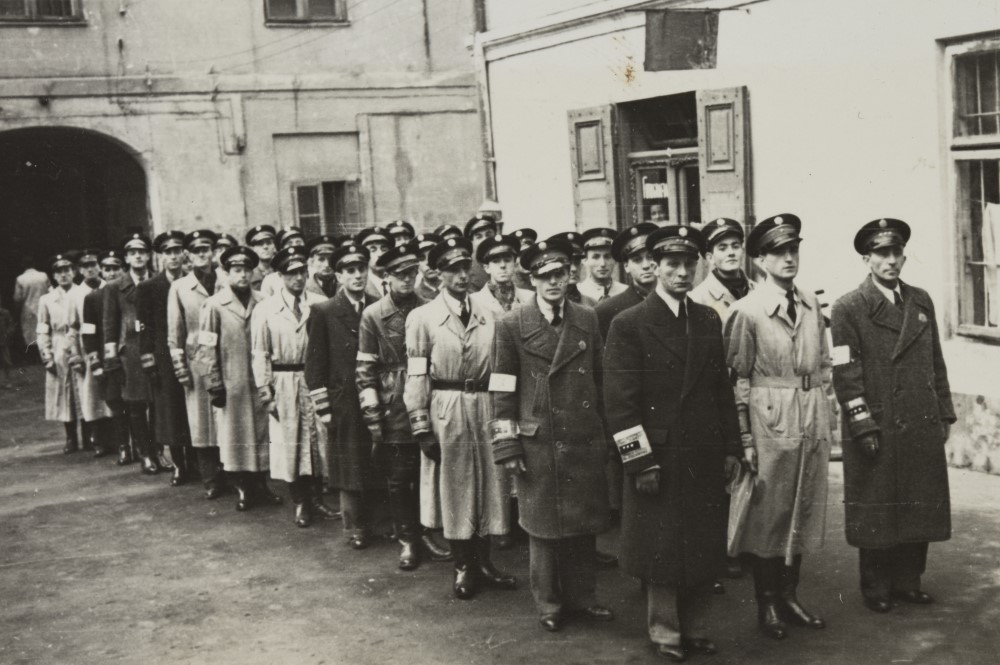
Jewish ghetto police (Jewish Historical Institute, Warsaw)
Let’s go back to the question of how the policemen are seen today. Working on such a sensitive issue, did you feel pressure that the results of your work could provide ammunition in debates on a side that you didn’t identify with?
Definitely, I was very afraid of that from the outset. But the more I got into the narrative on the Jewish police, the more I felt I should write about it.
During the research, I realised how often the phrase “organised Jewish collaboration” appeared, juxtaposed with the lack of a similar body on the Polish side. At least, until recently it was used. Now there’s research being done on the Blue Police [the Polish wartime police force in German-occupied Poland] that shows that things were completely different.
The motif of the Jewish police, often completely incorrect information, comes up not only in antisemitic discourse, but in the everyday public debate. Which is why I think it needs to be written about, to try to understand what a difficult and complicated situation many of them were in. And I’d like for us to be able to talk about the Jewish police at different levels, examining them from various angles.
This was what happened with the Righteous Among the Nations, on whom there is an increasing amount of research showing various aspects of their stories. As a result, it is no longer a subject appropriated by one historical narrative.
Were your fears realised? How was the book received?
I think its reception showed that it was needed. The English translation is due out next year.
How has it figured in discussions abroad, for example in Israel?
It’s interesting that this subject is also beginning to be broached. There is a lot of research and discussion in Israel on the history of the post-war trials of people accused of wartime collaboration, and PhD dissertations are being written on the Jewish police. Until recently that would have been unimaginable.
Unimaginable?
Yes, but that’s by no means an Israeli issue. In every country, there is the question of remembrance of the war and victims and how we want to talk about them as well as how ready we are to talk about the experiences of our parents, or how much only if it’s about our grandparents. In Poland too, the subject of collaboration or various forms of cooperation with the people who persecute us is very difficult.
In Poland there was also a lack of studies on the Blue Police. Just as we are only now tackling this subject, and we haven’t faced up to the question of szmalcowniks [people who blackmailed Jews who were in hiding or the Poles who protected them] at all. That’s a question that’s hardly been researched. In the same way, the question of the complex array of attitudes during the Holocaust is only now joining the canon of researched issues, because there is more public willingness to talk about them. As with the experience of civilians and of women.
You say that we approach our parents’ experiences differently from those of our grandparents. I recently talked to Mirosław Tryczyk, who in his book Drzazga (Splinter) writes about dealing with the history of our grandparents as perpetrators of the pogroms. His conversations also showed that distance is needed, the time that needs to pass to face up to difficult experiences. Why do you think that is?
The experience of our parents is our experience, the one we grow up with, in which we are raised, which we soak up and find hard to talk about. The experience of our grandparents or great-grandparents is no longer our experience to the same extent.
For example, large-scale research on sexual violence during the war is starting to be done. It is tremendously hard to talk about that in the context of our mothers and fathers, to research it, talk to them and write about what happened to them. But when they are our great-grandmothers, these might not be the events that directly shape us.
On the other hand, there is also greater openness among readers, because openness on a given subject needs to come from both sides. It’s not just a matter of research, but also of a society ready to talk about it and not reject it. This distance of an additional generation means that this subject is far away, but still close.
Which research related to the Holocaust has there not been enough time, or indeed openness, for yet?
There is so much. Certainly, the experience of civilians, women, children. Research has been done, but not enough. The challenge, of course, is whose voices have survived, who spoke about this experience after the war. But in my opinion, the biggest need is for the non-heroic stories, the complex and difficult ones. Not the stories of victims, but of people. People who only at a certain moment became victims. And this was the key thing for me when writing Policemen, to show people.
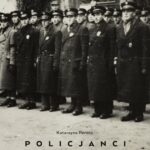
*Katarzyna Person is a historian who works at the Jewish Historical Institute, where she is the coordinator of a project working on a complete edition of the Underground Archive of the Warsaw Ghetto collection (the Ringelblum Archive). She is the author of three books on the Holocaust and the first years after the war. Her book Policjanci (Policemen), published in 2018, was nominated for the Polityka History Awards and the Kazimierz Moczarski City of Warsaw History Award.
Interview translated by Ben Koschalka
Main image credit: Ludwig Knobloch/Deutsches Bundesarchiv/Wikimedia Commons (under CC BY-SA 3.0 DE)
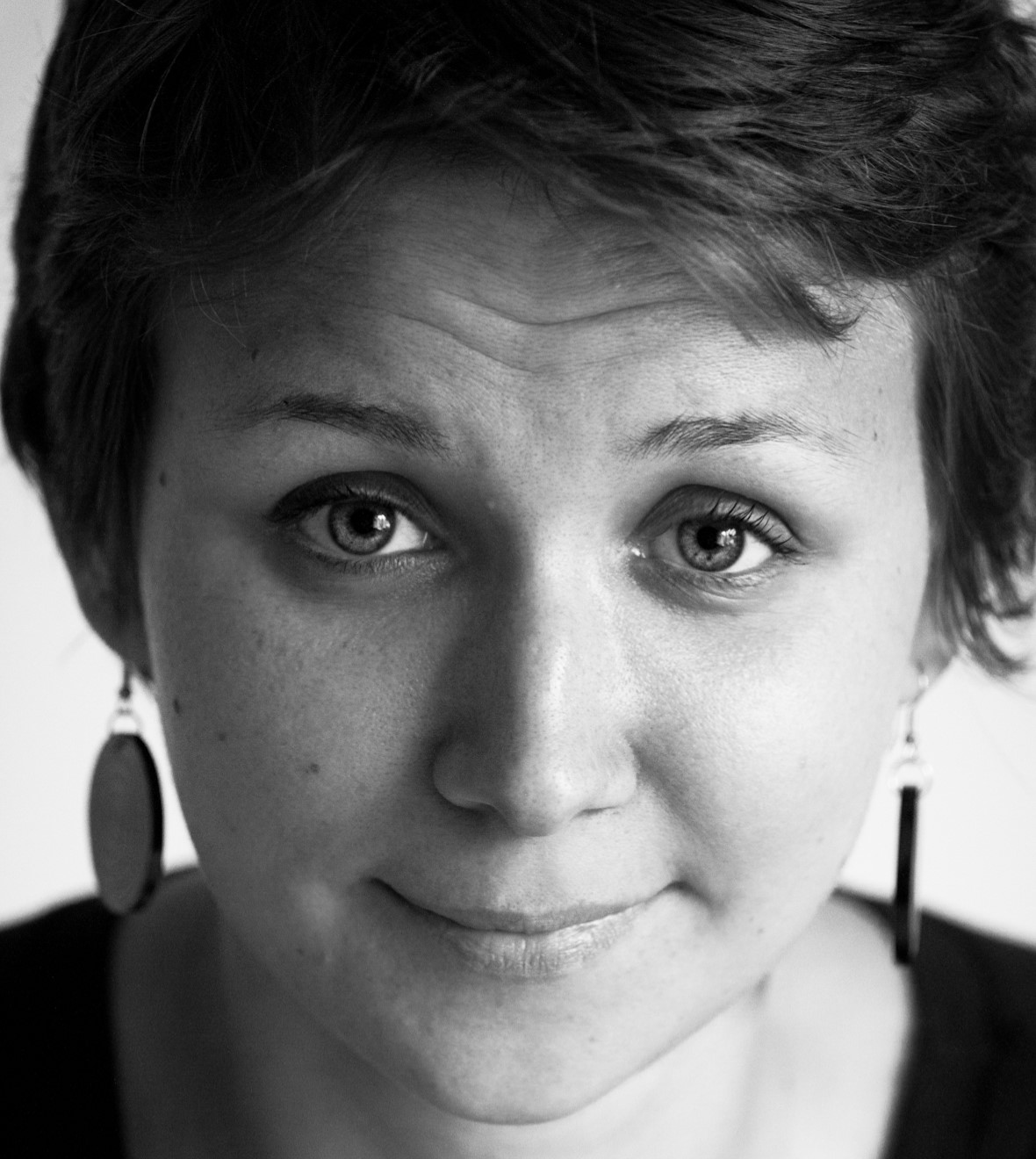
Agnieszka Wądołowska is deputy editor of Notes from Poland. She has previously worked for Gazeta.pl and Tokfm.pl and contributed to Gazeta Wyborcza, Wysokie Obcasy, Duży Format, Midrasz and Kultura Liberalna
